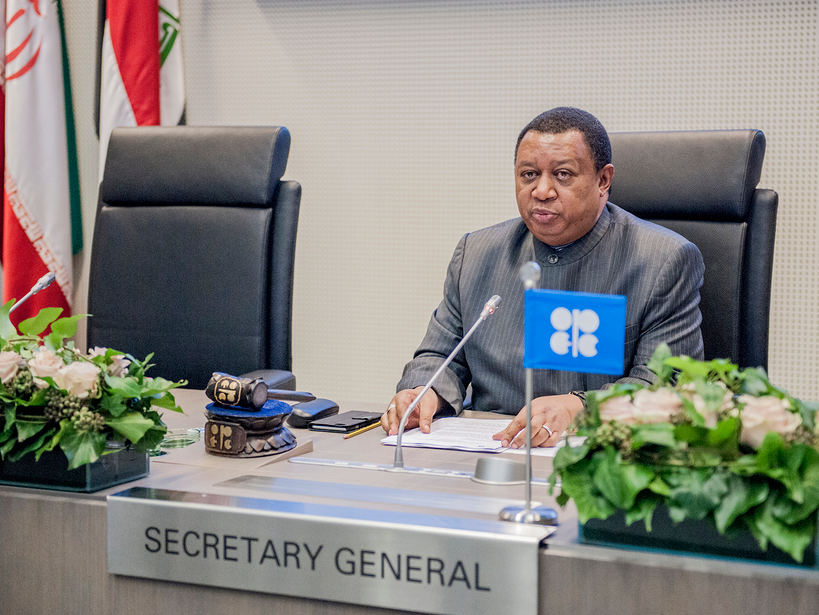
Oil market stability is “vital” to a functional global economy, the head of the OPEC cartel has told industry leaders.
Secretary general for Organisation or Petroleum Exporting Countries, Mohammad Barkindo, made the statement while delivering a speech in London as part of International Petroleum Week.
His remarks come on the back of an agreement between OPEC nations and 11 non-member states to a six month production curb aimed at reducing global oil stockpiles.
There had been widespread fear among investors about the countries involved sticking to the production cuts.
But OPEC’s most recent monthly report shows conformity from participating nations above 90 per cent.
The OPEC leader said that continuing this global partnership was key to steadying the oil and gas price.
Barkindo said: “We want this to be a lasting and flexible partnership that when necessary can help reduce volatility, provide more confidence to the market, and steer a path towards more sustainable stability.
“In the short-term it is expected that this cooperation between OPEC and non-OPEC, alongside recent indications of some improving macroeconomic conditions, will see the re balancing process brought forward and more stability return to the market.
“I cannot over stress how vital this is, not only to the industry, but the global economy too.”
Barkindo told the audience that a market re balancing would lessen the financial and operational burdens on operators to cancel or postpone projects.
Global oil and gas exploration and production spending fell by around 26 per cent in 2015 and a further 22 per cent drop in 2016.
HE added: “To put it simply: the industry cannot afford to see investment levels fall for a third year in a row!
“Stability today is also vital for stability in the future, given that the oil industry is very much a medium- to long-term business.
“Moreover, the industry remains a growth business. We see the world requiring more oil in the years ahead. Oil will remain a fuel of choice for the foreseeable future.”
Recommended for you
